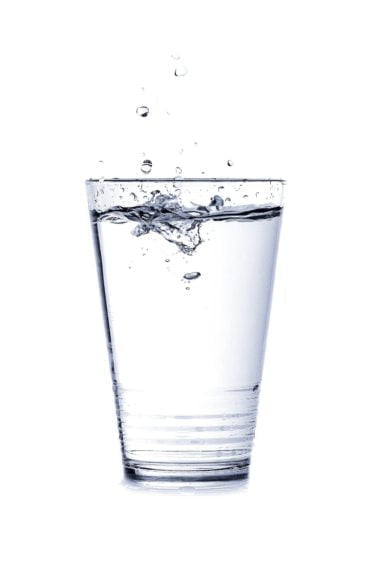‘New Year New Me’ is a statement that truly divides the population. While one half is on board, the other half scream back, “You’re fine the way you are!” Whichever camp you fall into, January 1st can feel like a monumental day; a day for change. It’s the level up from “diet starts Monday”.
As a nutrition professional, I’m not a fan of that sentiment, for a number of reasons.
When it comes to New Year’s resolutions, the statistics don’t look good. According to research by Richard Wiseman, 88% of New Year’s resolutions fail. According to a YouGov survey, only 4% of survey participants reported that they stuck to all their resolutions in 2018, while 24% kept some but not all of their resolutions.
When it comes to sticking by resolutions, it’s not looking good. Why is this? A lot of people I come across have quite strong black-and-white thinking patterns. Either you stick to your goal 100% or you’ve failed. There’s no room for nuance, no in-between. It’s incredibly disheartening, and allows one barrier to derail you completely.
In 2017, the most popular New Year’s resolution was to lose weight and eat healthier. Once the year was up, however, only 9% of people reported feeling that they were successful in the goals they had set for themselves.
We also don’t consider that what we want and what our bodies want might not be the same thing. I think there can be a certain expectation that the body will simply play ball with whatever drastic or exciting venture we have planned for it. Even now, one of the most common New Year’s resolutions is to lose weight. But what if your body doesn’t really want that to happen? It might, but there’s no guarantee.

When it comes to January and diets, we can set ourselves up for failure without even trying. We know in advance that January 1st is coming, and what to expect, and our thinking can enter what is colloquially known as a ‘last supper’ mentality. You know that a period of restriction is coming up, so there can be a desire, or perceived need even, to enjoy the abundance while it lasts. A day of this here and there isn’t a problem in the slightest – many of us do this on Christmas Day as that meal is so special, and not one we’ll likely have again for a year. It’s understandable to want to make the most out of it. But when this mindset remains over several weeks, possibly even the whole of December, it can take away some of the enjoyment. You can get a taste of it right now: try drinking as much water as you can. The first few sips when you’re thirsty are delicious, then the more you drink it becomes boring, then even uncomfortable. By the end the experience is ruined because you’ve gone too far. We can do the exact same thing with food.
The answer isn’t to start dieting at Christmas either, in case you’re thinking “I should have started earlier”. In 2018, a double blinded trial of 272 adults found that dieting behaviours around Christmas time prevented 0.37kg of weight gain. That’s less than a can of beans. Worth it? I don’t think so.
Decades of research has demonstrated that diets are very effective in the short-term, but when we look at years rather than months, the data is incredibly disappointing. For a select few (usually the most vocal online), diets seem to do the job, but for the majority any lost weight is usually regained within a year or two [1-5].
With all this in mind, I propose something different: why not make this the year where you say enough with the list of foods you can and cannot eat, and enough of someone who’s never met you telling you what to do with your body? Instead of looking outwards, practice looking inwards, at what your body is asking for. What does hunger feel like for you? What prevents you from being able to consistently recognise and respond to what your body is asking you? Is it sleep deprivation, alcohol, distractions, work? What do you need for a meal to be really satisfying? Not just reaching physical fullness but proper satisfaction – that feeling where you finish a meal feeling great and not needing anything else?
Research shows that this interoceptive awareness is associated with health benefits, and when matched against a dieting programme, those who looked inwards rather than outwards had better physical and mental health outcomes. This is still an emerging field of research, but according to initial studies participants experienced improvements in cholesterol levels, blood lipid levels, blood pressure, depression, and body appreciation, and started eating a greater variety of foods.
Perhaps it’s an idea worth considering, rather than yet another diet that’s likely to fail. And if that’s not your cup of tea, how about making your New Year’s resolution going to therapy, if you can afford it? I think the world would probably be a better place if we all went to therapy.
References
- Wing RR, Phelan S. Long-term weight loss maintenance. Am J Clin Nutr. 2005;82(1):222S-225S. doi:10.1093/ajcn/82.1.222S
- Howard B V., Manson JE, Stefanick ML, et al. Low-Fat Dietary Pattern and Weight Change Over 7 Years. JAMA. 2006;295(1):39. doi:10.1001/jama.295.1.39
- Methods for voluntary weight loss and control. NIH Technology Assessment Conference Panel. Ann Intern Med. 1992;116(11):942-949. http://www.ncbi.nlm.nih.gov/pubmed/1580453. Accessed June 8, 2018.
- Mann T, Tomiyama AJ, Westling E, Lew A-M, Samuels B, Chatman J. Medicare’s search for effective obesity treatments: Diets are not the answer. Am Psychol. 2007;62(3):220-233. doi:10.1037/0003-066X.62.3.220
- French SA, Jeffery RW, Forster JL. Dieting status and its relationship to weight, dietary intake, and physical activity changes over two years in a working population. Obes Res. 1994;2(2):135-144. http://www.ncbi.nlm.nih.gov/pubmed/16355486. Accessed June 7, 2018.



